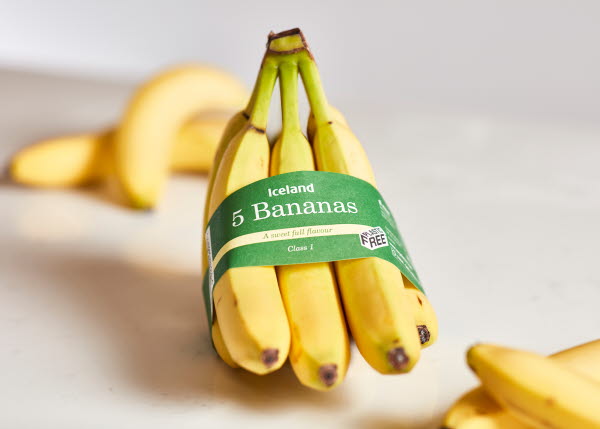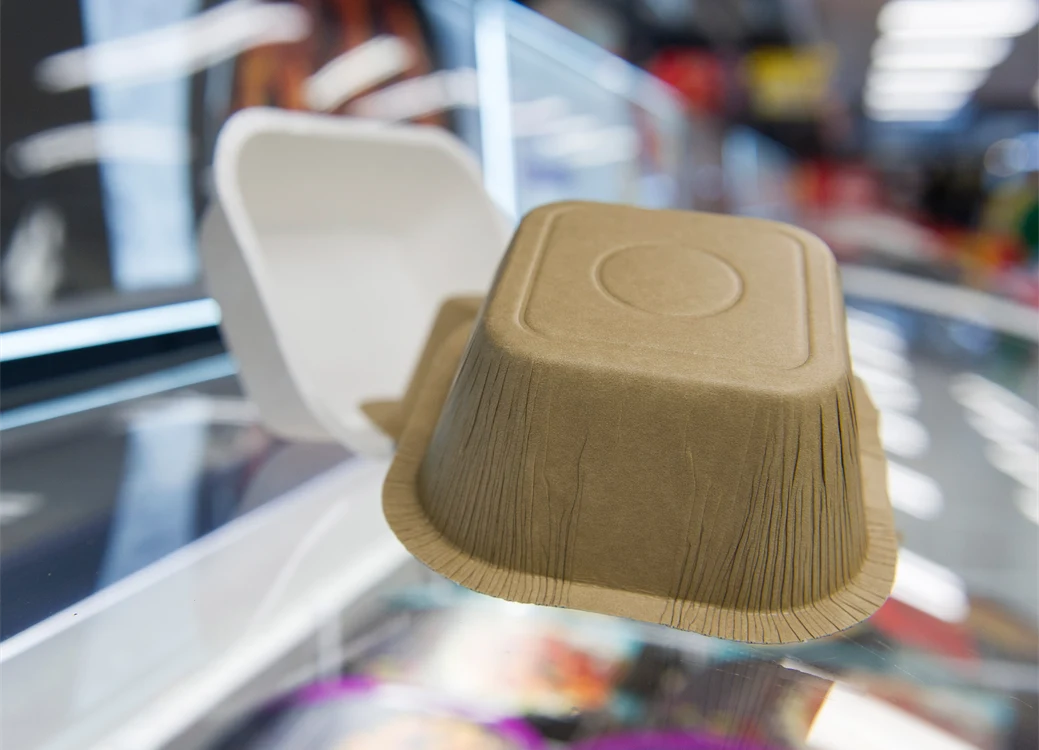Iceland Foods’ announcement in January 2018 that it plans to eliminate all plastic packaging on its own products by 2023 drew great attention from the UK media. For Packaging Manager Ian Schofield, the decision involved some personal irony.
“When I trained as a packaging technologist forty years ago, the job involved squeezing plastic into as many places as possible in the packaging. Today I’m working in the opposite direction, to take it all out again.”
Schofield had previously worked at Iceland Foods before he returned to the company five years ago. Malcolm Walker, who founded Iceland Foods in 1970, bought back the company with the aid of an investment firm in 2012. He asked Schofield to come back and take charge of the packaging on the company’s own label products and make it sustainable.
“Three things led to the decision,” Schofield explains. “Richard Walker, Malcolm’s son and the company’s managing director, is a surfer and described how he was surrounded by plastic every time he went out to surf. We watched the BBC series Blue Planet and realized the seriousness of the plastic problem. The third thing was that we were planning to launch a series of children’s products and it hit us that it was completely insane to package them in plastic”.

Wasn’t it hard to turn such a large company around and go down the plastic-free route?
“We have total sales of three billion pounds a year but relative to the big supermarket chains we’re small. This means we can change direction quickly. We’re like a racing boat. Not a supertanker like Sainsbury’s and Tesco. And we’re known for making quick decisions. We also control our purchasing from the top down and we got all our purchasers on board with the fact that we would no longer accept ready meals and other goods in plastic packaging. So, the whole company became involved.”
The biggest challenge was that the switchover had to be price neutral to the consumer. It is not possible to charge more, Schofield says, because customers have no more money to spend on food.
“In studies, people say they’re willing to pay more for sustainability but in reality, they don’t behave that way. The second challenge involved finding alternative materials. Paperboard was an obvious one, and we use products from sustainably managed forests.
“Film was a trickier issue, even those made of cellulose. When we receive specifications from manufacturers, they often don’t make the grade and some of them actually contain plastic.”
Iceland Foods has taken its environmental commitment a long way, going so far as to buy up masses of the type of plastic packaging that the company is now replacing with paperboard.
“We’ve installed machines in a number of our shops that give customers money or coupons in return for their plastic containers. We take care of those, making sure they’re recycled and that no microplastic ends up in the sea.”
What reactions have there been?
“Extremely positive, not only from customers but from everyone who is committed to these issues. We didn’t do this for profit but because it’s the right thing to do. It’s a matter of taking a stand, and it happened that we were the first grocery chain to do so.”
Iceland Foods works a lot with Incada paperboard, produced at Holmen Iggesund’s Workington Mill.
“We like the material. It comes from sustainably managed forests, where one tree comes out and three go in, and I have personally seen how it’s done. And all the fibre that Holmen uses can be repeatedly recycled. Incada is a fantastic material to print on and we use it for all our premium products. It has excellent folding properties, even for high-speed machines, and at the final stage we add a high-gloss coating, so the products really stand out.”
So how do you see the future of packaging?
“It looks bright! True, replacing plastic with fibre products does involve some compromises. Perhaps we will not have exactly the same shelf life on all our products, but we will always ensure that they are safely packaged, though in a different way than today. In the long run, all plastic will disappear from all supermarkets. I’m convinced of that.”
Created 27 May, 2019.


